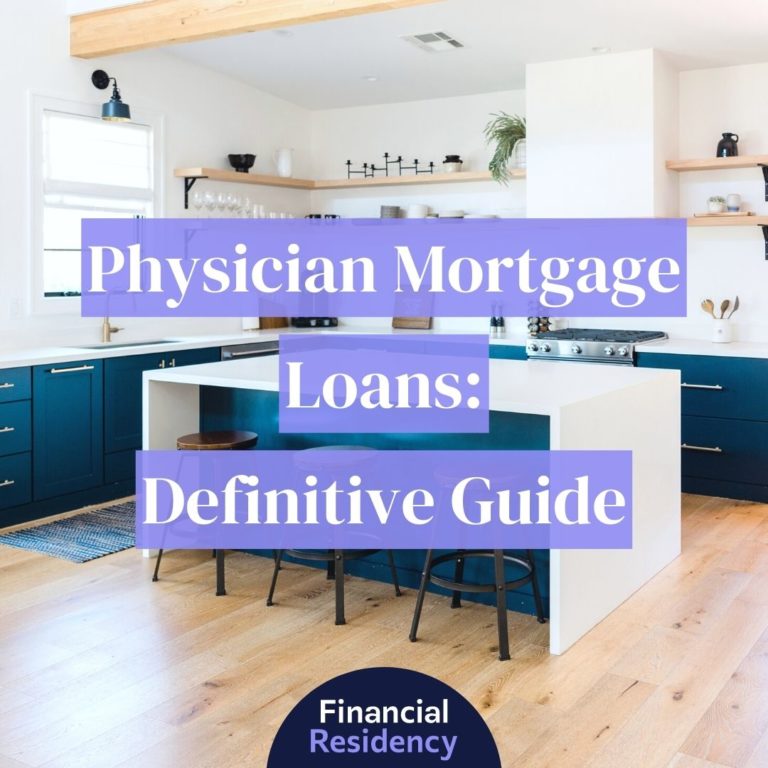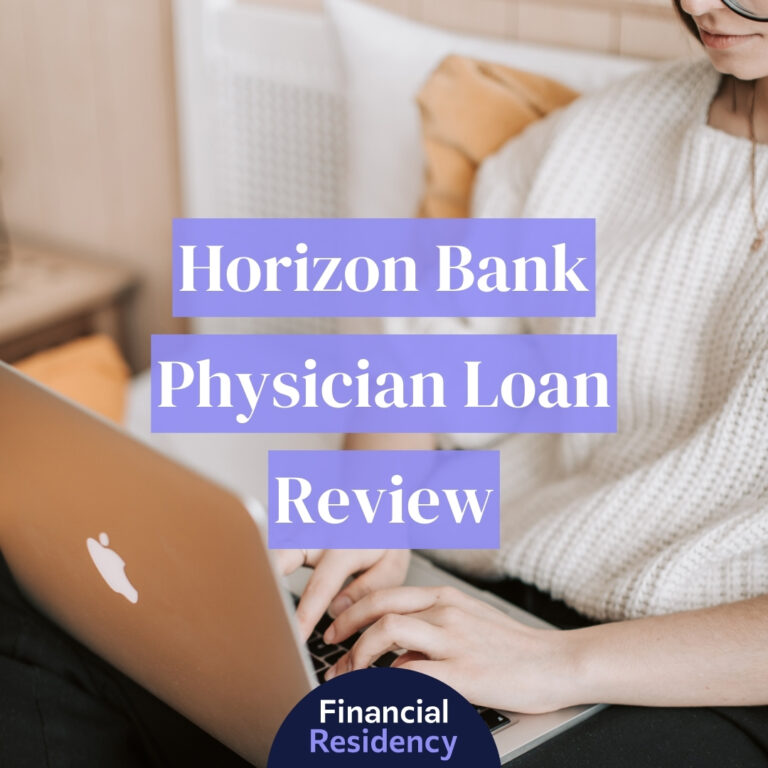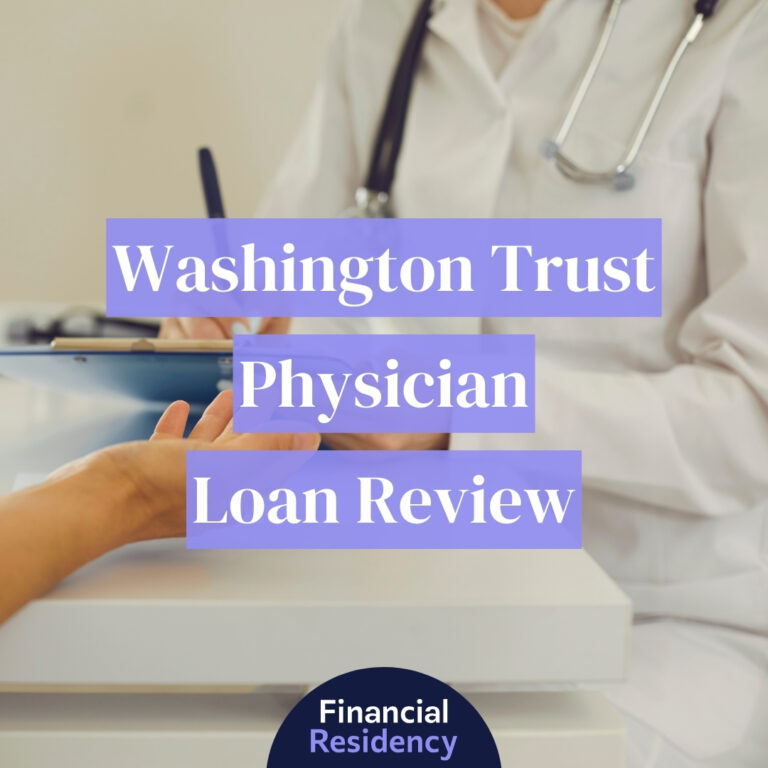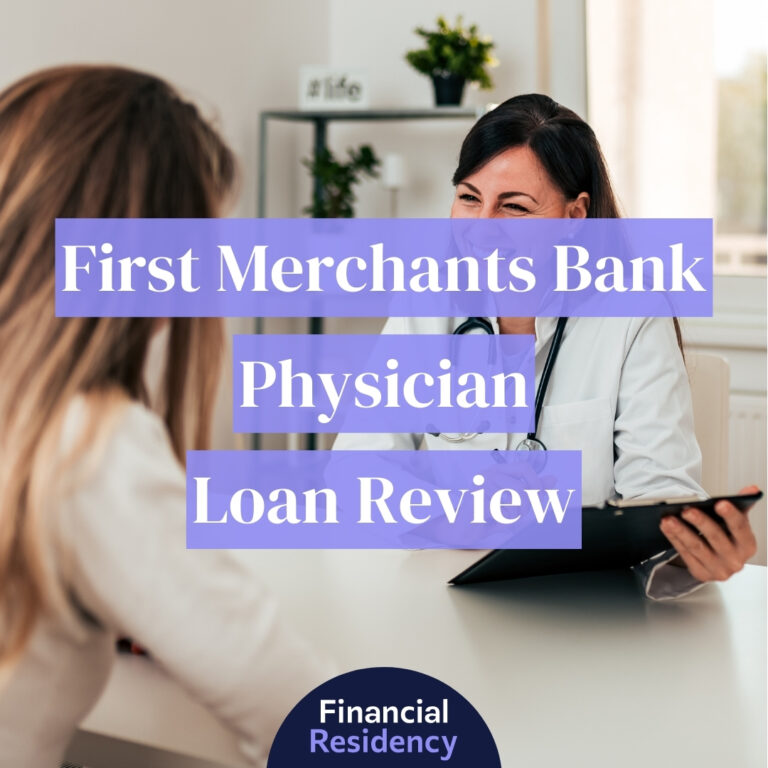Physician assistants (PA) are highly qualified medical professionals with anticipated job growth of more than 27% by 2031. Regardless of specialty, many physician assistants make six-figure salaries with an even higher earning potential if they choose a leadership tract.
However, even high-earning professionals can be saddled with mounting living expenses, crippling student loan debt, and limited income history at the start of their careers, which can create huge barriers to homeownership.
Physician assistant mortgage loans eliminate those barriers so you can start building equity and settling down in your own home.
Read on to find out if a physician assistant mortgage is right for you.
What are Physician Assistant Mortgage Loans?
Physician assistant mortgage loans are another name for a physician mortgage or doctor loan. Physician mortgages are specialized loan programs designed to meet the financial needs of early-career medical professionals who haven’t been able to establish an income history or save for a significant down payment.
Lenders offer physician mortgage loans to attract high-earning professionals to their businesses.
Physician assistants, medical doctors, and other highly trained healthcare professionals may graduate with student loan debt or minimal cash on hand. Still, they’re more likely to have their loans forgiven and earn six-figure salaries for the rest of their careers.
Here are some perks of physician loans:
- Waive private mortgage insurance (PMI) requirement, which can lower monthly loan payments by hundreds of dollars each month.
- May be used to purchase or refinance a primary residence
- Accept employment contracts as proof of earning potential
- Don’t include student loan debt in debt to income ratio
- Up to 100% financing
However, these programs have high credit score requirements, and it can be easy to live outside your means by borrowing too much, so it’s important to talk to a loan officer to get advice throughout the home-buying process.
Top Physician Assistant Mortgage Lenders
Here are the top physician assistant mortgage loans:
- Flagstar Bank
- First National Bank of Omaha
- Evolve Bank & Trust
- First Citizens Community Bank
- The Federal Savings Bank
- Premier Bank
- Consumers Credit Union
- Frandsen Bank & Trust
Discover The Best Lenders Answer just a few questions about your career, where you're buying, and how much you want to borrow. Our service will then show you the exact programs you're eligible for from vetted physician loan specialists who will guide you through every step of the process – obligation-free!
1. Flagstar Bank
- BBB Grade: A
- J.D. Power Score: 591
- State availability: All 50 states
Flagstar Bank is one of the most inclusive doctor loan programs on this list. It provides specialized financing through its Professional Loan Program for everyone from ATP Piilots to attorneys to a long list of medical professionals, including physician assistants.
Borrowers with a credit score of at least 720 can receive up to $1 million without a down payment. Loans up to $1.5 million will require a 5% down payment.
All Professional Loans are adjustable-rate mortgages (ARMs), meaning they have an introductory fixed interest rate that will be reset throughout the loan term.
ARMs can make it difficult to predict your loan payments year-to-year, but there are times when your monthly payments will be lower than you’ve been paying due to interest rate fluctuations.
Learn More:
2. First National Bank of Omaha (FNBO)
- BBB Grade: A+
- J.D. Power Score: NR
- State availability: CO, IL, IA, KS, NE, SD, TX, WY
First National Bank of Omaha (FNBO) will provide up to $850,000 in financing without a down payment, but it will lend up to $1.5 million to qualified borrowers. The following professionals are included in the program:
- CRNA
- DDS
- DMD
- DO
- DVM
- MD
- NP
- PA
Like other physician mortgage loan programs, FNBO waives the PMI requirement. Borrowers must have a minimum credit score of 720, which is higher than comparable programs.
While Flagstar Bank exclusively offers ARMs, FNBO customers can choose between variable and fixed-interest products. Loans may be used to purchase or refinance a property.
Learn More:
3. Evolve Bank & Trust
- BBB Grade: A
- J.D. Power Score: NR
- State availability: All 50 states
Evolve Bank & Trust opens its doctor mortgage loan program to the following healthcare professionals:
- Chiropractor (DC)
- CRNA
- Dentists (DDS and DMD)
- DVM
- MD
- NP
- Optometrist
- PA
- Pharmacists (RPH)
- Podiatrist (DPM)
Borrowers can get 100% financing on loans up to $1 million. Loans between $1 million and $1.25 million will require a 5% down payment. Loans up to $1.5 million will require a 10% down payment. The program caps out at $2 million with a 15% down payment.
All down payment options exclude PMI. You can qualify for a home loan with an employment contract dated within 90 days of your closing date.
Learn More:
4. First Citizens Community Bank
- BBB Grade: A+
- D. Power Score: NR
- State availability: AZ, CA, CO, FL, GA, KS, MD, MO, NE, NV, NM, NC, OK, OR, SC, TN, TX, VA, WA, WV, WI
First Citizens Community Bank (FCCB) offers attractive mortgage options for physician assistants. The first option is a 100% mortgage, which means 100% of the mortgage costs are bundled into one streamlined monthly payment. Many physician mortgage loans follow this model.
The second option is an 80/20 mortgage. Through this option, the home buyer will take out two mortgages––one for 80% of the purchase price and the other for 20% of the home equity. With this option, you’ll have to make two monthly loan payments, but you can build equity in your home faster.
First Citizens will even provide financing to build your own home or refinance a property you already own. It requires a 700 minimum credit score, an employment contract or three years of tax returns, and an FCCB account enrolled in AutoPay.
Learn More:
5. The Federal Savings Bank
- BBB Grade: A+
- J.D. Power Score: NR
- State availability: All 50 states
The Federal Savings Bank includes the following medical professionals in its doctor loan program:
- CRNA
- DDS or DMD
- DO
- DPM
- DVM
- MD
- NP
- Nurse Midwife (APRN)
- OD
- PA
- PharmD
- Psychologist
Qualified borrowers may finance up to $2 million for the purchase of an owner-occupied residence in all 50 states. Student loans deferred for 12 months or more will be excluded from DTI calculations.
The program will even allow up to 6% of your closing costs to be paid by the seller or you can accept gift funds from any immediate family member.
The lender will also help you close quickly if you can show a signed employment contract dated within 90 days of your desired closing date.
Learn More:
6. Premier Bank
- BBB Grade: A+
- J.D. Power Score: NR
- State availability: IN, MI, OH, PA
Premier Bank’s Medical Professional Loan program extends to physicians, nurse anesthetists, certified nurse practitioners, physician assistants, veterinarians, physical therapists, optometrists, and chiropractors.
You may borrow up to $750,000 without a down payment, but loans up to $1 million will require at least 5% down. None of these loans require PMI.
Deferred student loans are excluded from the credit approval and DTI calculation process, which can make it easier to qualify for medical professionals with very high student loan debt.
Premier Bank offers a variety of fixed and variable interest rate mortgage products, depending on your financial needs. Like many physician programs, you can close on your home with a signed employment contract.
Learn More:
7. Consumers Credit Union
- BBB Grade: A+
- J.D. Power Score: NR
- State availability: IN, MI
Consumers Credit Union offers its medical professional loan program to physician assistants and several other medical designations.
The program will provide up to $750,000 in financing without a down payment. Loans over $750,000 will require a minimum down payment of 5%.
This lender offers 30-year fixed mortgages and 7/1 ARMs. Both down payment options waive PMI. The program excludes all student loan debt from the credit approval process.
Loans may be used to purchase a single-family home or condominium that will be used as your primary residence.
Learn More:
8. Frandsen Bank & Trust
- BBB Grade: A+
- J.D. Power Score: NR
- State availability: MN, WI, ND
Frandsen Bank & Trust offers its medical home loan to a variety of medical professionals in Minnesota, Wisconsin, and North Dakota:
Most loans will require a 5% down payment, but you may be able to negotiate a lower down payment under special circumstances. Student loans are excluded from DTI calculations.
Unlike many physician loan programs, Frandsen Bank & Trust loans money on primary, vacation, or investment homes.
The stand-out feature of this lender is it doesn’t stipulate an exact start date for your employment to close on the home. By contrast, many similar programs will need a future-dated employment contract within 90 days to approve you.
Learn More:
Pros & Cons of Physician Assistant Mortgage Loans
Considering the pros and cons is an important part of any informed decision—shopping for physician assistant mortgage loans shouldn’t be any different.
Pros:
- No private mortgage insurance: Doctor mortgage loans don’t require private mortgage insurance, even with low down payments.
- Larger loan amounts: Physician mortgages are non-conforming loans, making it easier to qualify for larger sums of money.
- Buy before you start work: Many loan programs designed for medical professionals will accept signed employment contracts as proof of earning potential––allowing you to close on a home before you start work.
- More lenient on student loan debt: Physician loan debt-to-income calculators will sometimes exclude student loan debt.
- Little money down: Physician assistants can qualify for home loans with as little as 0–5% down.
Cons:
- Primary residence: Many physician mortgage loan programs are only available for purchasing or refinancing a primary residence.
- Adjustable-rate mortgage: A lot of physician mortgage loan programs are adjustable-rate mortgages, which can make it harder to anticipate your monthly payments.
- Higher credit score: Physician loan programs often require a minimum credit score of 700, which is a higher standard than other loan programs.
Physician Assistant Mortgage Loans Alternatives
You’ll want to consider all your available mortgage options before making a final decision.
1. Conventional Loan
Conventional loans are the most common home loan choice for U.S. home buyers. Many borrowers can qualify for a conventional loan with a minimum credit score of 620 – 640, which is considerably lower than the requirement for doctor loan programs.
Conventional loans will require private mortgage insurance for down payments of less than 20%, but you can remove this requirement once you build up home equity. The minimum down payment is typically 3-5% of the total loan amount.
Conventional loans are available as fixed or adjustable-rate mortgages, allowing you to choose the loan program that best fits your needs. You’ll also need proof of stable income through pay stubs, bank statements, or tax returns. These loan programs generally look for DTI ratios lower than 43%.
2. VA Loan
In 2020, there were more than 1,944 physician assistants enlisted in the armed forces or reserves. The Department of Veteran Affairs sponsors VA loans. VA loans are serviced by participating mortgage lenders, but the loan program has a few standard requirements.
- All borrowers must be current or former armed forces members or reserves in good standing. In cases where a veteran died in the line of duty, their spouse may also qualify for a VA loan.
- VA loans don’t have a minimum credit score requirement. Instead, they require lenders to review your entire loan profile.
- VA loans don’t require a down payment or PMI, but you will have to pay a funding fee equal to 2.3% of your home loan.
- VA loans must be used to purchase or refinance a primary residence you occupy for at least 12 months, but there are some allowances for intermittent occupancy due to employment.
- Spouses may fulfill the occupancy requirement for deployed military members. After the occupancy requirement is satisfied, homeowners can do with their property as they please.
3. FHA Loan
FHA loans are backed by the Federal Housing Administration, which allows local lenders to provide specialized loan terms for qualified borrowers. The biggest benefit of an FHA loan is it only requires a down payment of 3.5% for borrowers with a minimum credit score of 580.
Other borrowers aren’t disqualified for lower credit scores, but participating will require a down payment of 10%. You’ll also need sufficient cash reserves for closing costs, which can range from 3-6% of the total loan amount.
FHA loans don’t require PMI, but there is an upfront funding fee of 1.75%. The loan may only be used for the purchase of your primary residence, and you should have a debt-to-income ratio of less than 43%.
FHA loans have rigid requirements that all properties must meet to qualify for financing. For example, the property must be appraised by an FHA-approved appraiser before closing. If any issues are detected, they will need to be fixed before the lender will move forward.
4. USDA Loan
USDA loans are another government-sponsored mortgage program that is offered by the U.S. Department of Agriculture. Like FHA and VA loans, USDA loans are serviced by local lenders but insured by the USDA, which allows the lender to offer more attractive terms.
USDA loans don’t require down payments or PMI, but you must pay an upfront funding fee of 1% and an annual fee of 0.35%. USDA loans are designed for low to moderate-income borrowers purchasing single-family homes in rural areas.
For this reason, USDA loans have an income limit. The income limit varies by county. Borrowers will typically need a minimum credit score of 640. USDA loans also have a loan limit, which varies depending on where you live.
5. 80/10/10 Mortgage
Typically, mortgage lenders charge private mortgage insurance when homeowners have less than 20% equity in their homes, but 80/10/10 mortgages provide a workaround.
This type of arrangement works by taking out a primary mortgage for 80% of the home’s purchase price. The next 10% comes from taking out a second mortgage as a home equity loan or line of credit. The final 10% would be your down payment.
80/10/10 mortgages may not be for everyone because your loan payments will be split across two programs. You’ll also have to pay the closing costs for two mortgages. However, splitting your mortgage payments has its advantages.
For example, you can deduct the interest on both mortgages on your taxes. Putting a smaller down payment will also leave you with more cash reserves should you need to complete any repairs once you’re living in the home.
First-Time Homebuyer Programs, Grants, and Down Payment Assistance
A few grants, down payment assistance, and other programs can help make homeownership more accessible to first-time homebuyers and qualifying borrowers.
Good Neighbor Next Door
The U.S. Department of Housing and Development (HUD) runs the Good Neighbor Next Door program. Through the program, law enforcement officers, first responders, and other emergency medical professionals can purchase qualifying properties at a 50% discount.
The homes will always be located in designated revitalization areas. You’ll be required to fulfill a minimum occupancy of three years. The program requires borrowers to take out an interest-free second mortgage, but the entire loan amount will be forgiven after the occupancy requirement is met.
Chenoa Fund
The Chenoa Fund will cover the entire 3.5% down payment for FHA borrowers through a second mortgage. Eligible borrowers must have a minimum credit score of 620 and meet the income requirements for their area.
The program will also provide homeownership counseling. In some cases, loans become forgivable after a number of on-time payments are received.
National Homebuyers Fund
The National Homebuyers Fund (NHF) will provide down payment assistance (DPA) of up to 5% of your total loan amount. These funds can be used for your down payment or closing costs when you purchase or refinance a primary residence.
The program doesn’t require borrowers to be first-time homebuyers. Its credit score and debt-to-income ratio requirements are flexible, making the program accessible. DPA may be used with conventional, FHA, and VA loans.
Grants and Discounts from Private Lenders
Some private lenders will offer grants designed for medical professionals or first-time homebuyers.
It’s also common for private lenders to provide interest rate discounts for borrowers who maintain a checking or savings account with the bank. Talk to your loan officer or mortgage broker to find out the programs available to you.
Down Payment Assistance Programs in Your State
States, cities, and counties will often offer specialized down payment assistance programs, but there’s not a full list of available programs at the moment.
HUD maintains a resource of some state programs on its website. The FHA maintains additional down payment assistance from state resources.




